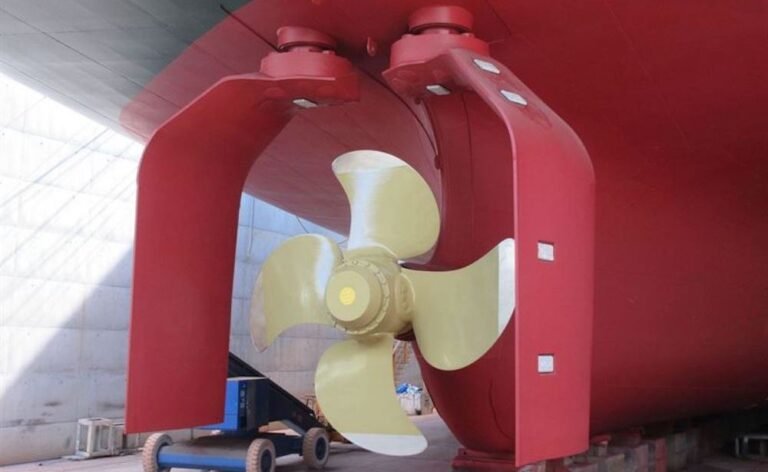Demand for Advanced Propeller Retrofits and Energy-Saving Devices Soars
The demand for advanced propeller retrofits and energy-saving devices (ESDs) has nearly quadrupled since 2020 as the shipping industry strives to enhance energy efficiency to meet tightening emissions regulations.
According to a new report from British class society Lloyd’s Register (LR), high-efficiency propellers can deliver fuel savings of between 3-10%, with popular devices such as rudder bulbs achieving 3.5% reductions. However, only 1.74% of the global fleet currently features the rudder bulb, the most popular device. The report makes a strong case for retrofitting, providing clients with payback time estimates for their investments.
The orderbook reveals a different story, with 8.42% of vessels on order opting for ESD installations. The proportion of vessels on the orderbook fitted with a particular device is significantly higher than those already in service, ranging between two and six times higher.
More than 10,000 vessels in the existing fleet and orderbook feature some form of propulsion energy-saving technology, with at least an additional 1,400 vessels having ESDs retrofitted since 2020. The number of installations on existing vessels is growing, showing nearly four-fold growth since 2020, with close to 1,500 vessels contracted to be fitted with devices by the end of 2024.
The report also highlights a trend towards retrofitting newer vessels, with over one-third of 2024 retrofits performed on ships less than ten years old, compared to just 16% in 2020. By 2024, 12% of retrofits were carried out on vessels built less than six years ago, a category that saw no retrofits in 2020.
Regulatory pressure is cited as the primary driver behind the surge in retrofits. LR’s analysis projects that a 20% fuel consumption reduction could save an aframax tanker operator nearly $3m over 10 years through reduced exposure to European regulations alone.
Claudene Sharp-Patel, LR’s global technical director, emphasized the significant benefits of propeller and ESD retrofits, offering ship operators a pathway to substantial fuel savings, extended regulatory compliance, and meaningful emissions reductions.
Speaking with Splash last week, Nick Brown, CEO of LR, highlighted the impact of the recent Marine Environment Protection Committee meeting at the International Maritime Organization and the draft of an ambitious Net Zero Framework. Brown mentioned that the proposed legislation had significantly boosted the business case for modifying existing ships.
British consultancy Maritime Strategies International (MSI) provided early insights into the potential impact of the Net Zero Framework on the bunker market. By extending fuel consumption estimates and applying bunker price forecasts, MSI projected future fuel costs for conventionally-fuelled ships alongside IMO penalties. The penalties could amount to an 82% premium on top of fleet bunker costs by 2035, totaling almost $100bn for the 30,000 ships tracked in MSI’s database.


